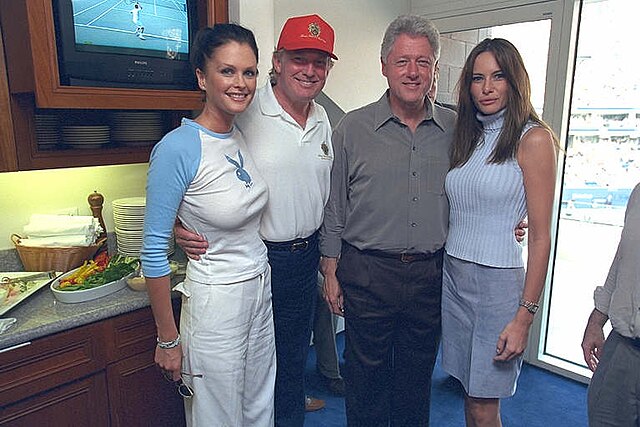









Bill Clinton remains a pivotal figure in American politics, with a legacy shaped by both his presidency and his post-presidential activism. This article explores the multifaceted aspects of Clinton's influence, from policy initiatives to personal controversies.
The Presidential Era: Policies and Programs
Bill Clinton served as the 42nd President of the United States from 1993 to 2001. His presidency was notable for several key policies and programs:
-
Economic Growth: Clinton's administration is often credited with significant economic growth during the 1990s. The U.S. saw a budget surplus and a decrease in unemployment rates. The implementation of the North American Free Trade Agreement (NAFTA) aimed to boost trade between the U.S., Canada, and Mexico, although it remains a contentious topic regarding its long-term effects on American jobs.
-
Welfare Reform: The Personal Responsibility and Work Opportunity Reconciliation Act of 1996 drastically changed the welfare system, introducing work requirements and limiting the duration of assistance. While supporters argue it encouraged self-sufficiency, critics claim it has left many vulnerable populations without necessary support.
-
Healthcare and Education: Clinton's attempts to reform healthcare were largely unsuccessful, though his administration did expand the Children's Health Insurance Program (CHIP). Additionally, the administration pushed for the "Goals 2000" initiative to improve education standards across the nation.
Scandals and Controversies
Clinton's presidency was marred by several scandals that have continued to influence public perception:
-
Monica Lewinsky Affair: The revelation of Clinton's extramarital affair with White House intern Monica Lewinsky led to his impeachment by the House of Representatives in 1998 on charges of perjury and obstruction of justice. Although he was acquitted by the Senate, the scandal has had a lasting impact on his legacy and public image.
-
Whitewater Controversy: This real estate investment scandal raised questions about the ethics of the Clintons' financial dealings before he became president. Investigations into Whitewater revealed a complex web of financial transactions, although no charges were filed against Clinton.
-
Benghazi and Further Investigations: While these events occurred after his presidency, the political climate surrounding the investigations into the 2012 Benghazi attack and Hillary Clinton's use of a private email server have continued to keep the Clintons in the spotlight.
Post-Presidency Influence
Since leaving office, Clinton has maintained a significant presence in global and domestic affairs:
-
Clinton Foundation: Established in 2001, the Clinton Foundation focuses on global health, climate change, and economic development. Critics have questioned its funding sources and transparency, but it has had a substantial impact on issues like HIV/AIDS treatment in developing nations.
-
Political Campaigns and Support: Clinton has remained active in politics, endorsing candidates and campaigning for the Democratic Party. His ability to connect with voters and raise funds has made him a valuable asset for the party, especially during contentious election cycles.
-
Public Speaking and Advocacy: Clinton is a sought-after speaker, often addressing issues like economic policy, international relations, and leadership. His insights into the political landscape continue to resonate, particularly among younger Democratic leaders.
The Clinton Legacy: A Dual Narrative
Bill Clinton's legacy is characterized by a dual narrative that reflects both his policy successes and personal controversies:
-
Economic and Social Policies: Supporters argue that his economic policies laid the groundwork for a prosperous America and that his focus on education and healthcare was forward-thinking for its time. His ability to work across party lines is cited as a hallmark of effective leadership.
-
Personal Controversies: Detractors often point to his personal failings and the ethical implications of his presidency. The scandals have created a cautionary tale about the intersection of personal behavior and public office.
Analyzing Current Influence: The 2024 Election Cycle and Beyond
As the 2024 election cycle approaches, Clinton's influence remains relevant:
-
Advisory Role: Clinton has stepped into advisory roles for candidates, particularly in the Democratic primaries. His experience can provide valuable insights, yet some party members express concern over the potential backlash from voters regarding his past.
-
Shifting Political Landscape: The political landscape has evolved significantly since Clinton's presidency, with new challenges and demographics shaping the electorate. While Clinton's centrist policies may appeal to some, others advocate for more progressive stances.
-
Cultural Impact: Clinton's legacy is also reflected in popular culture, including portrayals in media and literature. These representations often underscore the complexities of his presidency, shaping public understanding in contemporary discourse.
Conclusion: Bill Clinton's Enduring Footprint
Bill Clinton's tenure as president and his subsequent role in American politics present a complex tapestry of achievements and controversies. As we navigate the current political climate, understanding Clinton's influence is crucial for comprehending the ongoing evolution of the Democratic Party and American governance. His ability to engage with pressing issues, combined with the baggage of his history, ensures that he remains a pivotal figure in discussions of American political identity and policy.
